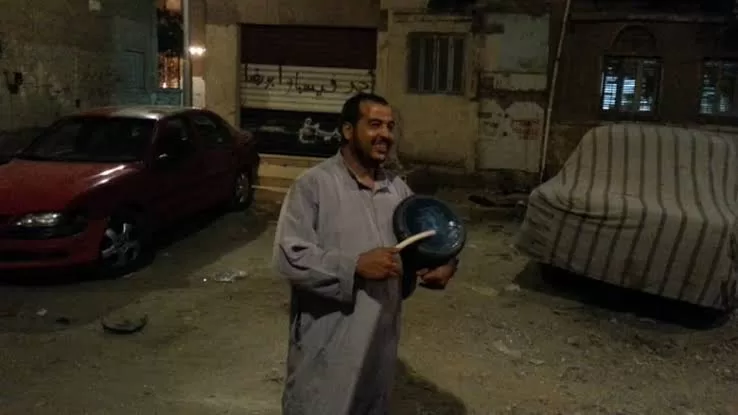“Wake-up sleepers, praise Allah,” calls the mesaharaty as he strolls through the streets before dawn, banging his drum to wake people up for their sohour meal during the holy fasting month of Ramadan.
To prepare for a long day of fasting, Muslims take their sohour, a meal eaten before dawn which marks the start of the fast.
The mesaharaty is the name given to the person who walks around an area beating his drum or chanting phrases to wake people up, and often call them out by their names, to have suhour.
In the early days of Islam, there were no mesaharaty until the Abbasid era (750-1261) at the time of Caliph Al Nasser in Egypt.
The then governor of Egypt Otbah Ibn Ishaq was the first known mesaharaty in history. He is said to have walked through the streets of Cairo and used poetic phrases meaning: “O! Those who of you who are asleep, wake up and pray to Allah…”
For centuries, the mesaharaty, has been an icon of Ramadan in Egypt and many Arab countries. However, with technology taking over modern-day life, this deep-rooted Ramadan tradition is slowly dying out. Today, television, mobiles and alarm clocks are fast replacing the job that a mesaharaty did.
The tradition has only been maintained thanks to those who have refused to give up the job they take on for only one month a year. It still exists is some densely populated districts in Cairo and Giza.
“Since the death of my father, I have been responsible for waking people up, often by calling out their names , so they can have their sohour in preparation for the next day’s fast,” said Sameh El Mesaharati, who has been in charge of el-Darb el-Gedid area in Sayeda Zeinab for the past 25 years.
“We inherited the job from our parents and grandparents,” he added, adding that this tradition has not disappeared, because many mesaharitiyyahave refused to give up this one-month-a-year job.
Sameh used to live in the area where he works, but had to move because his house was badly affected by the earthquake that hit the capital in 1992. Now he’s living in Salam City and works as a painter.
Sameh starts his tour of the neighbourhood at 1a.m. so that he can finish in time before the dawn prayer.
When asked whether people really depend on him more than their alarm clocks, he said: “Very few do, but mostly the mesaharaty walks around, beating his drum and calling out residents because it evokes a kind of joy with kids who have come to associate Ramadan nights with the mesaharaty.”
“One time a man who lived on the fourth floor asked me to come up. I thought he was going to tip me, but it turned out his daughter just wanted to see the mesaharaty. It’s one way of encouraging children to love Ramadan.
The mesaharaty does not take any payment for this night-time work, but it is customary at the end of Ramadan to be given gifts by the residents of his neighbourhood for his efforts during the month.
“Residents rarely give me tips, but sometimes parents give me money so I could call out their children by name,” Sameh said.






Discussion about this post